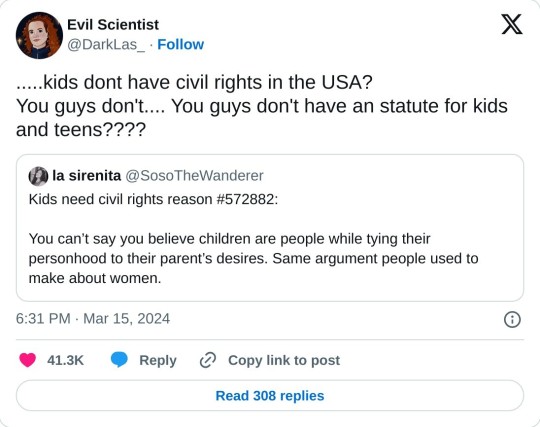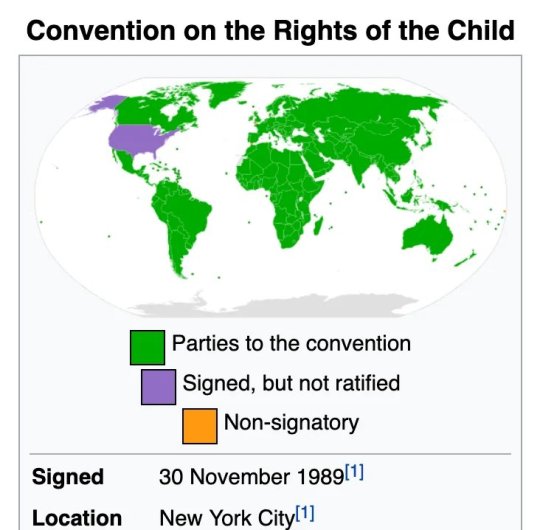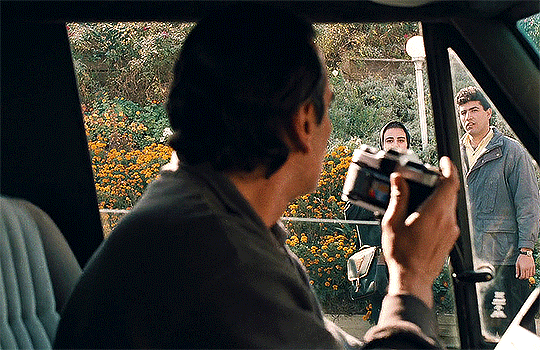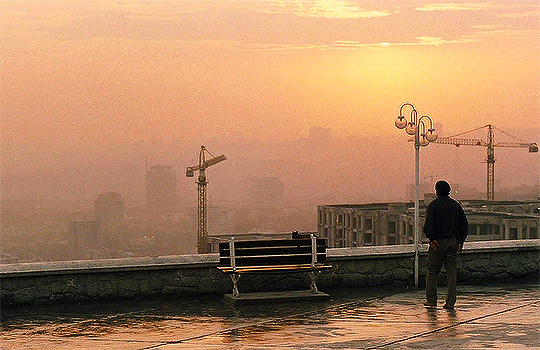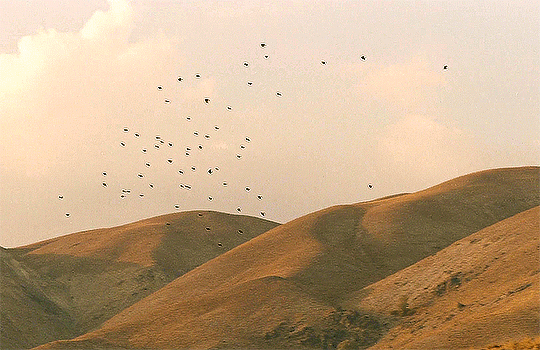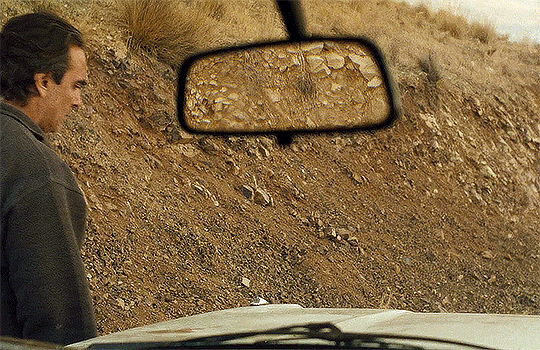Text

The Birth of Venus by Botticelli figure/bjd
Part of The Table Museum collection by Freeing
Link: |X|
It’s super breathtaking:

135K notes
·
View notes
Text
AOC is at the Columbia encampment. The students need to wise up fast and kick her ass out.
4K notes
·
View notes
Text


The Rosetta Stone on the Deep Space Nine Promenade, written in English, Klingon, Vulcan, Ferengi, Bajoran and Cardassian
1K notes
·
View notes
Text
Many of the leaders of the post-war East German, later GDR, government had a track record of active opposition to the Nazi regime; many had spent years in concentration camps, prison and exile, either in the Soviet Union or in western countries like France, Britain, Mexico or the USA, and a number of them were Jewish. The workers’ and socialist movements within Germany had been effectively destroyed by Hitler and many of the leaders had been murdered in concentration camps, and as result there was a limited number of experienced leaders. The inclusion of prominent figures from Jewish backgrounds in the first and subsequent East German governments and in leading positions of the state also serves to undermine the oft-repeated accusation that the GDR was anti-Semitic and was in stark contrast to the situation in West Germany. [...]
Otto Grotowohl became the first prime minister of the GDR and an active proponent of a long-lasting peace settlement in Europe. He was the former leader of the Social Democratic Party (SPD) in the Soviet Zone of Occupation. He had been imprisoned by the Nazis several times.
Walter Ulbricht, became the first general secretary of the Socialist Unity Party (SED - formed by a merger between the Communist and the Social Democratic Parties in the Soviet Zone in 1946). He was a former joiner, and spent his years of exile in the USSR.
He was replaced by Erich Honecker, a former roofer, who became party and state leader after Ulbricht. Honecker had been arrested by the Gestapo in 1935 and spent the following 10 years in a Nazi prison.
Wilhelm Pieck became the first president of the GDR. He had spent the Nazi period and war years in exile in the USSR together with Walter Ulbricht.
Albert Norden, a member of the SED Central Committee, was the son of a Rabbi and had been arrested for political activities during the Weimar Republic, escaping before the Nazis could arrest him, was to spend his exile years in the USA.
Herman Axen, a member of the Central Committee, came from a Jewish family and survived internment in both Auschwitz and Buchenwald.
Klaus Gysi, later Minister of Culture, also came from a Jewish family background and escaped the Nazis to spend his exile working with the resistance in France and Britain.
Markus Wolf, who became the GDR’s head of counter espionage, came from a Jewish background. He was the son of the renowned playwright and medical doctor Friedrich Wolf. He was also in the Soviet Union during the Nazi period.
Rudolph Herrnstadt came from a Jewish family and spent the Nazi and war years in Soviet exile. He became the first chief editor of Neues Deutschland, the national daily newspaper of the SED.
Alexander Abusch, the first Minister of Culture, was born to a Jewish family in Cracow and spent the war years in French exile.
Hilde Benjamin, also from a Jewish background, became the GDR’s first female minister and its second Minister of Justice. Under the Nazis she had been banned from practising law because of her Jewish background. She was the wife of Dr. Georg Benjamin (brother of the writer and cultural critic Walter Benjamin) who was murdered in Mauthausen concentration camp. She was instrumental in bringing in a whole raft of legislation favouring gender equality in the GDR.
[...]
Right into the 1960s, many highly decorated Nazis and war criminals were occupying top positions within the West German state. There were 21 Secretaries of State and ministers, 100 generals and admirals in the Bundeswehr, 825 senior members of the judiciary, 245 leading civil servants in the diplomatic corps and foreign service who had been top Nazis. Many top lawyers who had willingly enacted Nazi laws and handed down death sentences for political ‘crimes’, and medical professionals who had been involved in inhuman experimentation, race hygiene, genetic selection, forced sterilisations and euthanasia, were reinstated. [...]
Konrad Adenauer became the first post-war Chancellor. He was an arch-conservative, ardent Catholic and pre-war mayor of Cologne as well as President of the Prussian State Council. Before the war he had called for a coalition government with the Nazis, and although never a member of that party himself, he was certainly no anti-fascist. His first post war government was packed with other right-wing and Catholic figures as well as high-ranking former Nazis.
Hans Globke was Adenauer’s personal advisor. He had been an active member of the Nazi party, and had served as chief legal advisor to the Office for Jewish Affairs in the Ministry of the Interior, the section headed by Adolf Eichmann that was responsible for the administrative logistics of the Holocaust. It was he who co-wrote the official annotation explaining the implementation of the race laws which legalised the discrimination against the Jews.
West Germany’s second Chancellor Ludwig Erhard, the man credited with the country’s post-war ‘economic miracle’ and dubbed the ‘father of the social market economy’ had previously occupied a leading position in the Nazi Reichsgruppe Industrie and the Institute for Industrial Research financed by the chemical conglomerate IG Farben that supplied Zyklon-B for the gas chambers.
Kurt Kiesinger, who followed Erhard as Chancellor in 1966, joined the Nazi Party in 1933, a few weeks after Hitler came to power. In 1940, he was employed in the Ministry of Foreign Affairs’ radio propaganda department, rising to become deputy head from 1943 to 1945 and was liaison officer with Goebbels’ Ministry of Propaganda.
Heinrich Lübke, who became President of the Federal Republic in 1959, was another controversial figure. His signature (which he disputed) was found on the building plans for a concentration camp. He was involved in the setting up of an aircraft factory in an underground chamber and, under his direction, barracks were built to house concentration camp inmates who worked as slave labourers. Lübke was also involved in setting up the army research station at Peenemunde (where the V2 rockets were developed under Werner von Braun) as building director of the Schlemp Group. From 1943-45 he was responsible for the employment of concentration camp inmates as slave labour.
Hans Speidel, Commander-in-Chief of the allied ground forces in Central Europe from 1957 to 1963, served in the Nazi army’s French campaign of 1940 and became Chief of Staff of the military commander in France. In April 1944, Speidel was appointed Chief of Staff to Field Marshall Rommel.
Reinhard Gehlen, President of the BND, the West German secret service until 1968, had been chief of Hitler’s military intelligence unit on the Eastern Front. He had been officially released from American captivity in 1946 and flown back to Germany, where he began his intelligence work by setting up an organization of former German intelligence officers.
Only when Willi Brandt, who first became Mayor of West Berlin (1957-66), became German Chancellor (1969-74), was there a genuine anti-fascist at the helm of the Federal Republic. He had spent the exile years in Norway working as a journalist and hiding from the Nazis. For many years he was ostracised by establishment figures in West Germany as a ‘traitor’, just as Marlene Dietrich and others who left Germany during the Hitler years were. It was perhaps not surprising that it was only under Brandt’s Chancellorship that a thaw in East-West relations began to take place with a tentative rapprochement between the GDR and FRG.
[...]
This background and the way prominent personalities rose to power in the divided post-war Germany demonstrate that while in the East a genuine de-nazification process did take place, in the West it was desultory to begin with and later non-existent: many leading Nazis merely donned the new ‘democratic’ clothing and continued to occupy or re-occupy influential positions. Apart from the handful of top Nazis convicted at the Nuremburg trials, very few were called to account for their roles during the Nazi period. In fact, in the early post-war period the USA put a stop to any further attempts to bring Nazis to trial because it was determined to focus on its anti-communist crusade.
Stasi State or Socialist Paradise? The German Democratic Republic and What Became of It by Bruni de la Motte & John Green with Seumas Milne (Contributor), 2015.
374 notes
·
View notes
Text
It's interesting how Democratic Socialists and Anarchists make the same fundamental error but take it to the exact opposite conclusions. Both of them see the State as being devoid of class character: for DemSocs this means that the machinery of the Bourgeoisie State can be kept fundamentally intact and peacefully redirected towards the task of building socialism, while for Anarchists this means that the fundamental injustices of society are inherent to any form of State; not only must the Bourgeoisie State be destroyed but also any new State must be prevented from taking it's place.
They both fail to realise that the fundamental purpose of a state is as an instrument to resolve class antagonisms by allowing the dominant classes to exert power over the subjugated ones. History has shown time and time again that the Proletariat must built a state that serves their interests if they want to take and maintain power over the Bourgeoisie. A state created by Bourgeoisie interests will only ever serve the Bourgeoisie, while as long as there are antagonistic classes in society the Class that cannot or will not build a state in their interests will become subject to the one that does. Treating "The State" as some detached entity that only exists for it's own sake just won't get you anywhere
660 notes
·
View notes
Text


Hey. Don’t cry. “I fell in love with a lovely kitten. That kitten was myself.” and “I am happy because everyone loves me.” by Louis Wain, okay?
16K notes
·
View notes
Text
What I was taught growing up: Wild edible plants and animals were just so naturally abundant that the indigenous people of my area, namely western Washington state, didn't have to develop agriculture and could just easily forage/hunt for all their needs.
The first pebble in what would become a landslide: Native peoples practiced intentional fire, which kept the trees from growing over the camas praire.
The next: PNW native peoples intentionally planted and cultivated forest gardens, and we can still see the increase in biodiversity where these gardens were today.
The next: We have an oak prairie savanna ecosystem that was intentionally maintained via intentional fire (which they were banned from doing for like, 100 years and we're just now starting to do again), and this ecosystem is disappearing as Douglas firs spread, invasive species take over, and land is turned into European-style agricultural systems.
The Land Slide: Actually, the native peoples had a complex agricultural and food processing system that allowed them to meet all their needs throughout the year, including storing food for the long, wet, dark winter. They collected a wide variety of plant foods (along with the salmon, deer, and other animals they hunted), from seaweeds to roots to berries, and they also managed these food systems via not only burning, but pruning, weeding, planting, digging/tilling, selectively harvesting root crops so that smaller ones were left behind to grow and the biggest were left to reseed, and careful harvesting at particular times for each species that both ensured their perennial (!) crops would continue thriving and that harvest occurred at the best time for the best quality food. American settlers were willfully ignorant of the complex agricultural system, because being thus allowed them to claim the land wasn't being used. Native peoples were actively managing the ecosystem to produce their food, in a sustainable manner that increased biodiversity, thus benefiting not only themselves but other species as well.
So that's cool. If you want to read more, I suggest "Ancient Pathways, Ancestral Knowledge: Ethnobotany and Ecological Wisdom of Indigenous Peoples of Northwestern North America" by Nancy J. Turner
35K notes
·
View notes
Text
On the subject of orwell and his rancid anticommunism, his flagship title "animal farm" is not simply a "satire of the USSR"; it is a full and total repudiation of the idea of proletarian rule at all. The entire book depicts the workers as dumb and incapable and easily manipulated by leaders. This is a fully aristocratic view of the proletariat and entirely anti-proletarian. This should be no surprise to people who are familiar with orwell's opinions and past, including the fact that he has "never been able to dislike Hitler" (actual quote, March 21, 1940) and that he was a colonialist cop.
3K notes
·
View notes
Text

vice news
ironically i am working right now so i can’t do a full post on this like i would really prefer to do… but these are the most cartoonishly evil people that you could possibly imagine, even in a society as flawed as the one we’ve built for ourselves. these are bedrock groups devoted to protecting the american worker and consumer. massive huge giant waving red flags 🚩
24K notes
·
View notes
Text

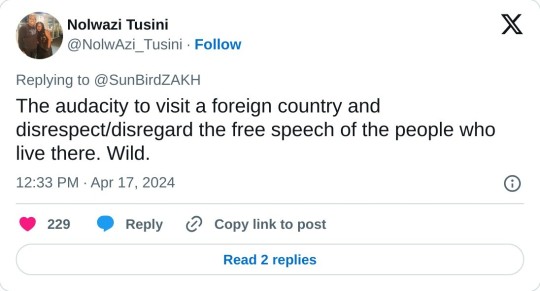

Hmm 🤔 Imagine finding out your actions have consequences 🤷🏻♀️🤷🏻♀️
2K notes
·
View notes
Text
















Lakota Nation vs. United States (2022, Jesse Short Bull & Laura Tomaselli)
11K notes
·
View notes
